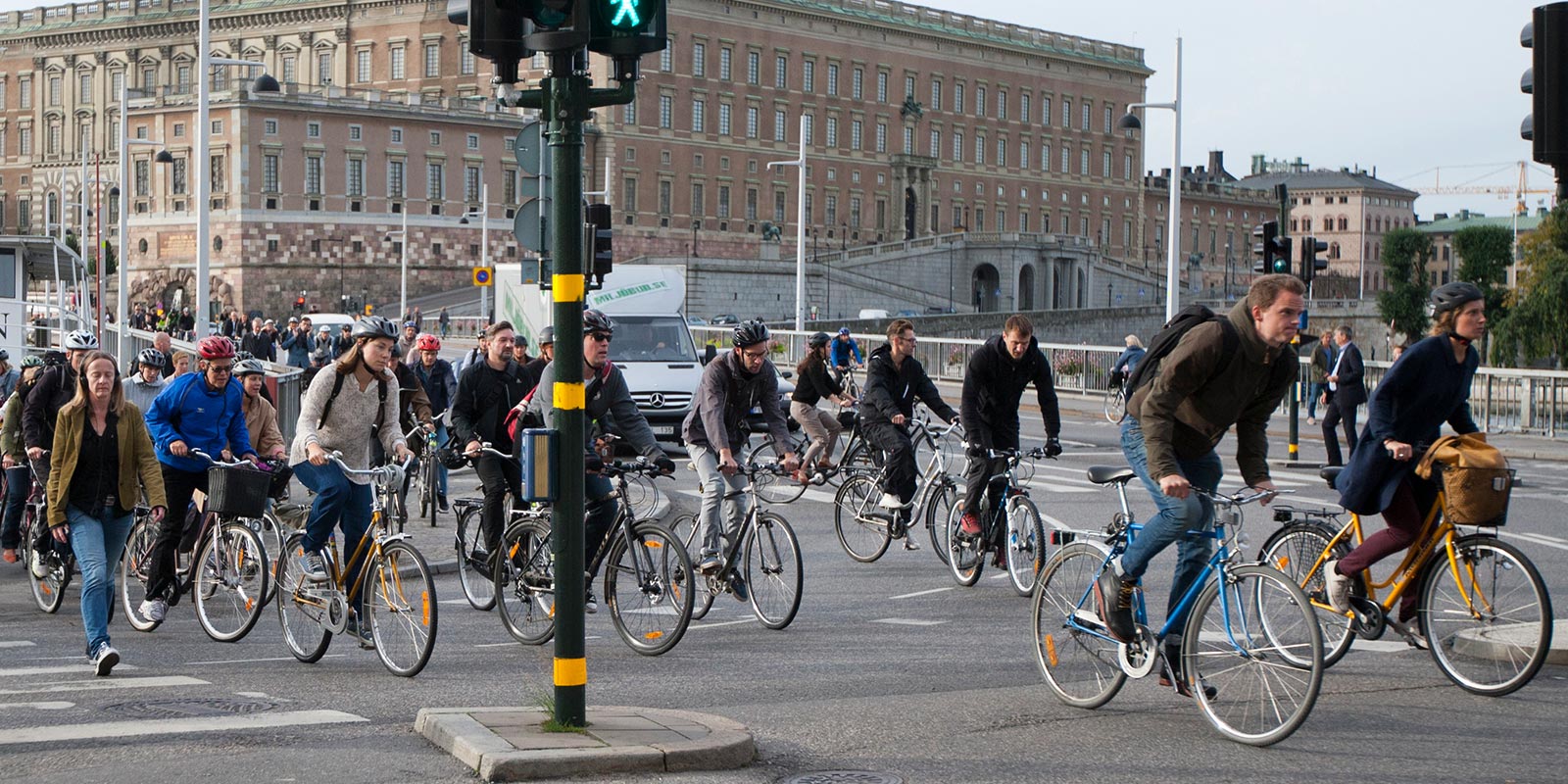
Stockholm
The vision of a climate-smart Stockholm forms the basis of a strategy for a fossil-fuel free Stockholm by 2040.
Tranquil nature close to the intensity of the city is the defining characteristic of Stockholm. Here smart solutions make it simple for all residents to lead eco-friendly lives. Without compromising the prospects of future generations, the city can grow and expand based on people’s needs and respect for the natural limits of our planet.
The vision of a climate-smart Stockholm forms the basis for the Strategy for a fossil-fuel free Stockholm 2040, a strategy that describes how the city needs to work to meet and manage the challenge of climate change, one of the most pressing issues of our time. The accelerating pace of climate change is jeopardising our future and that of our children. Stockholm can and must be a leader in efforts to reduce human impact on the global climate by making a successful transition from a society built on fossil fuels to one based on renewables. This essential shift also creates opportunities. Demands for renewable energy, improved energy efficiency and other green solutions are driving the development of a rapidly growing sector. This strategy provides us with the tools we need to become a fossil-fuel free city. It is the foundation on which a sustainable Stockholm will be built.
Fossil fuels currently account for approximately 30 percent of total energy use. This equates to emissions of 2.7 tonnes of CO2e per person (2015). The toughest challenge is that facing the transport sector; it is here that the need for action is most urgent. Electrification and a transport efficient city development are key areas. In 2040 residual fossil fuel is most likely to be found in the aviation and shipping industries. In the energy sector, too, fossil-based plastics are likely to continue to be present in waste that is incinerated in heating plants. To compensate for these residues, carbon sinks can be developed to reduce the city’s climate impact by absorbing atmospheric carbon dioxide. In the shorter term the strategy proposes measures that are those over which the municipal authorities and companies have the greatest power to act. The measures correspond to a reduction of 533,000 tonnes of CO2e between 2013 and 2019 and include actions such as bioenergy heat-and- power plants, promoting biking and public transport in the traffic planning, incentives for electric cars and renewable energy production such as biogas and solar power.
Read More
